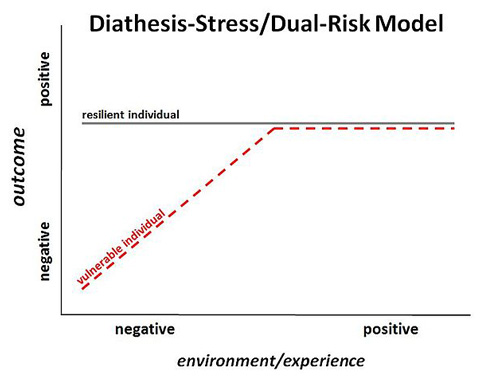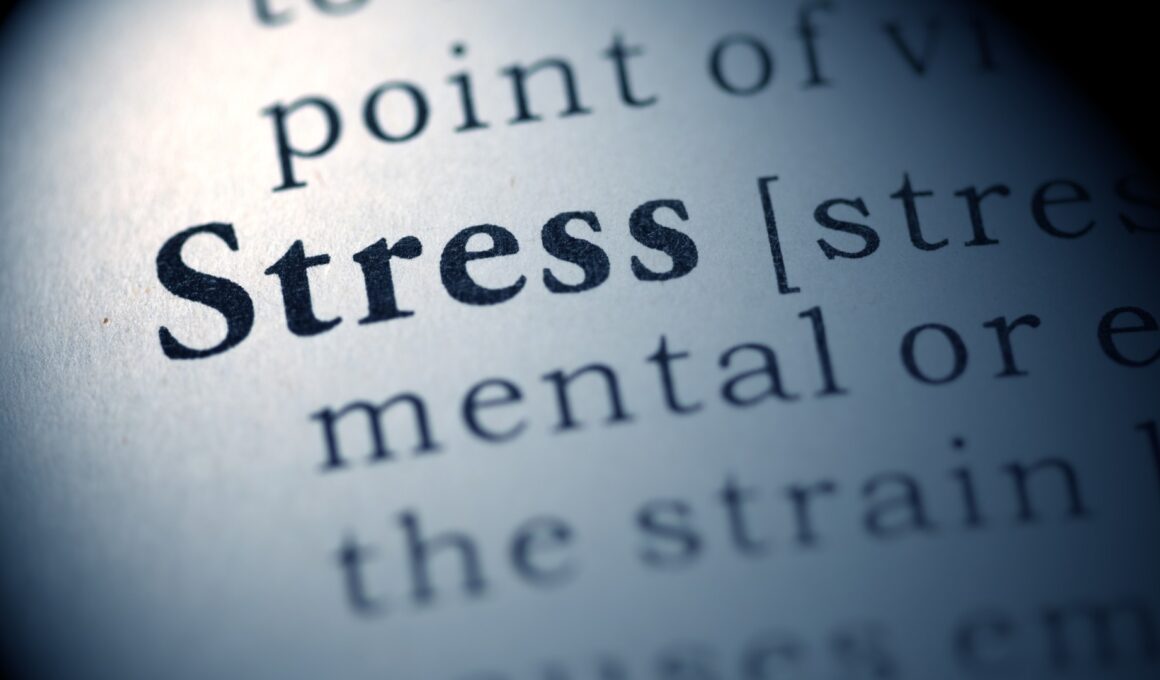The diathesis stress model is a psychological model that attempts to explain why we develop mental disorders. The underlying assumption is that all mental disorders are born out of an interaction between genetics and life experience.
The Fundamentals
In order for someone to suffer from a mental health difficult such as OCD for instance, someone must have the genetic predisposition to begin with and then be subjected to the right environmental factors for that underlying disposition to be fully realized. This might mean the individual has a predisposition for anxiety and being highly organized then and is then subjected to a stressful experience or ongoing chronic stress which provides the ‘trigger’ for the full condition to develop.
Most often, the environmental ‘trigger’ in the diathesis stress model is general stress. Thus, this means that someone undergoing a stressful life experience will be much more likely to experience serious mental health difficulties. The diathesis stress model can also be referred to as the ‘dual-risk model’.
In a nut-shell, the diathesis stress model answers the question of ‘nature or nurture’ as it relates to mental health by saying ‘both’.

Analysis of the Diathesis Stress Model
When looking at almost any psychological disorder from depression, to schizophrenia, to phobias, there appears to be at least some degree of genetic involvement. That is to say, that if you compare identical twins raised separately from one another, they will be more likely to experience the same mental health difficulties than if they were raised apart. Likewise, if your parent suffered from agoraphobia, you would be more likely than average to have the same condition or a similar condition yourself.
But at the same time, our mental health is not entirely predetermined. If one identical twin suffers from depression, the other is not guaranteed to suffer from it as well. According to studies of identical twins raised apart the genetic element seems to be about 67% in this case. Likewise in the case of depression, you are about 1.5-3 times more likely for it to develop if you have a close relative with the same condition. The conclusion is that certain genes appear to predispose us to depression.
The diathesis stress model is somewhat vague however and may oversimplify the subject when taken at face value. ‘Stress’ is a very broad scapegoat for the development of mental health disorders and really stress is only one aspect of the environment that could lead to the development of a mental health problem. Cognitive psychologists would argue that just as important is the way that you think about your situation, while mental health disorders could also be learned. Likewise, someone could well develop depression who was not any more genetically predisposed if they were to experience enough negative life events, or if they were to develop maladaptive thinking habits. It is presumably possible to develop mental health disorders in some cases without any obvious cause of ‘stress’ (as we think of it) to act as the trigger.
Saying that stress is solely responsible as a trigger is also somewhat arbitrary – how much stress for instance is necessary for someone to go from ‘at risk’ of bipolar disorder to suffering from it? Likewise, predisposition is likely not ‘binary’ either. Perhaps one person could be 20% predisposed and another could be 60% – and the amount of stress necessary to ‘push them over the edge’ would vary in accordance.
Protective factors on the other hand such as high self-esteem and social networks can also help someone who is stressed and predisposed to be less likely to develop mental health disorders. The effect of stress is this way ‘mediated’ by many other things going on in that person’s life.
Conclusion
For these reasons, the term diathesis stress model is perhaps a little too narrow; ‘dual risk’ seems more appropriate and comprehensive. It is likely more accurate to think of mental health disorders as being the result of a complex interplay of many factors, some of which are genetically predetermined and others of which are a result of the environment. Chronic stress may be one of the bigger risk factors but it is far from the only player.
That said, this theory does outline and reinforce the importance of looking after your mental health and particularly trying to avoid and cope with acute and chronic stress as much as possible. Don’t write off the stress in your life as being ‘no big deal’. If you are constantly undergoing chronic stress to an uncomfortable degree, this could be what eventually leads to the development of a full-blown and serious mental health disorder.




